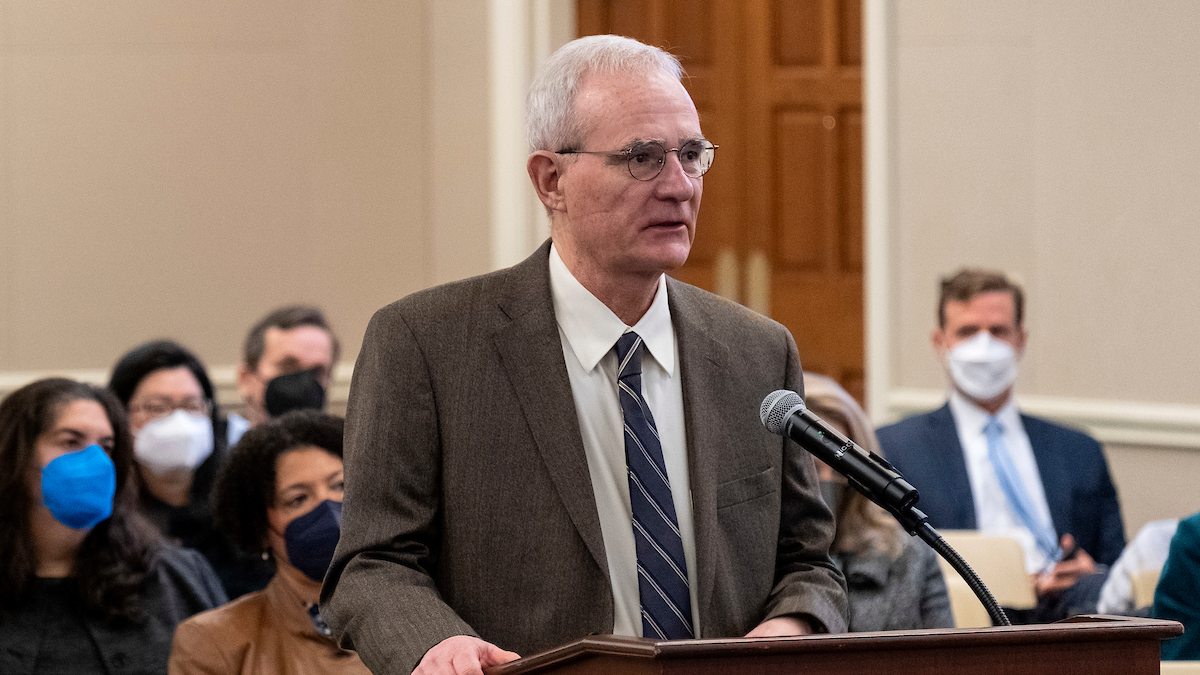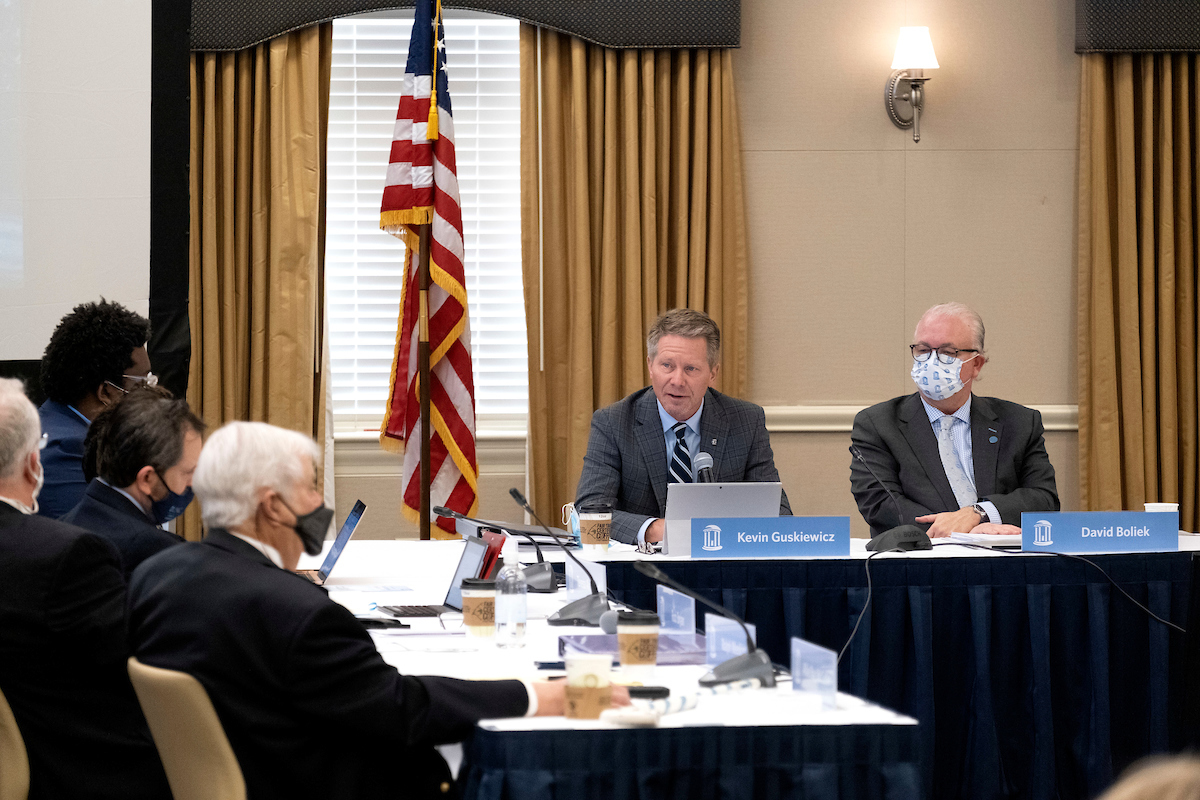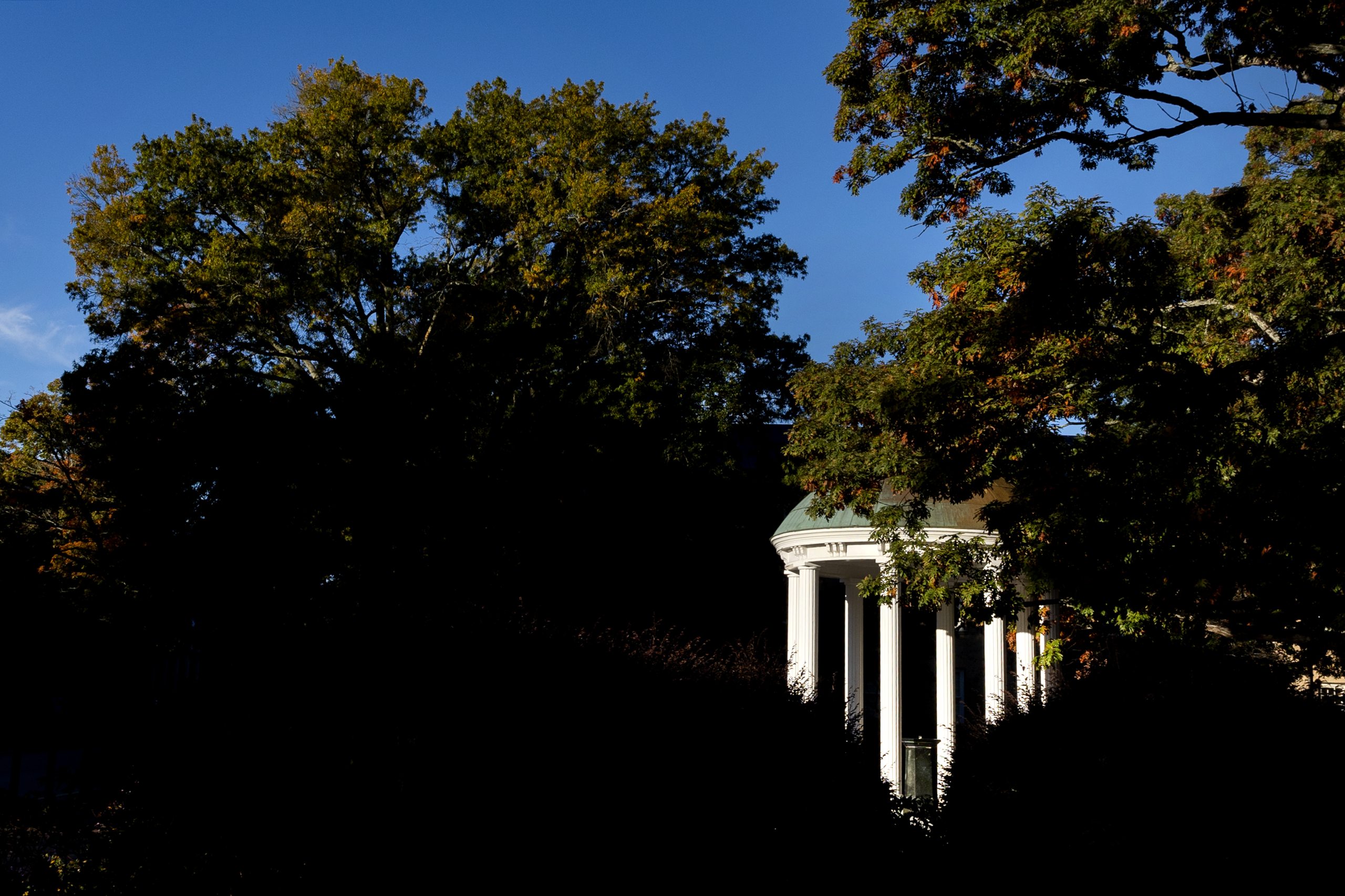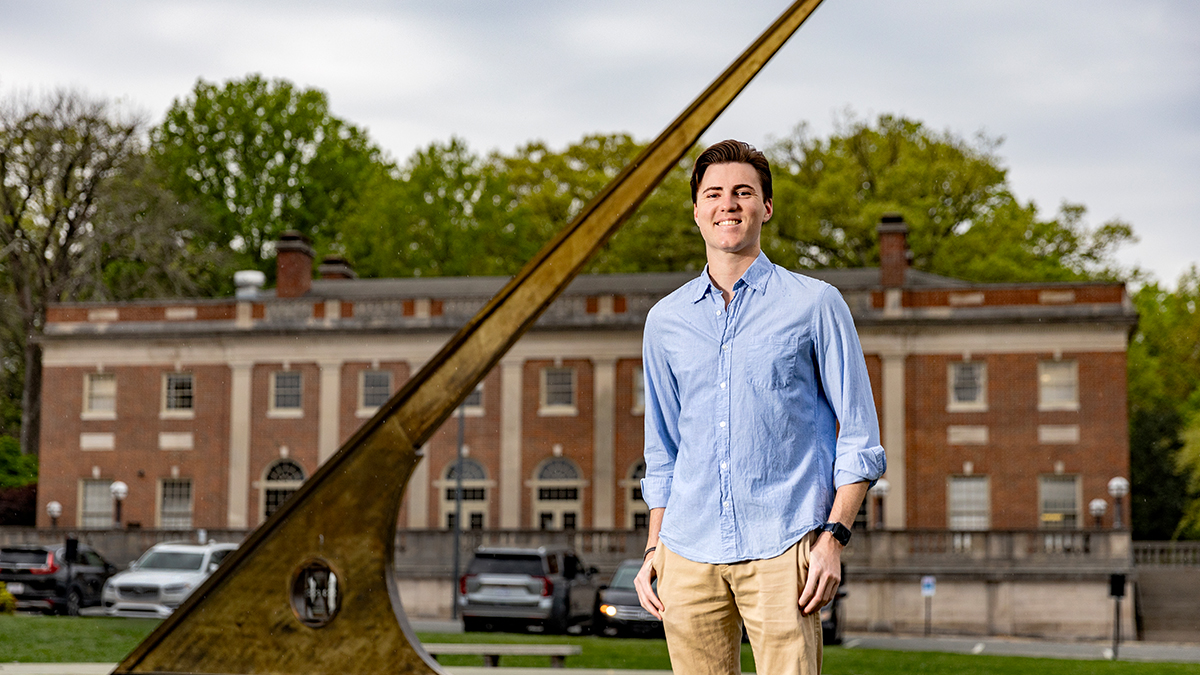University presents top priorities to trustees
At its first meeting of 2022, the Board of Trustees heard good news about Carolina’s finances, research enterprise and a new data science school.

“I’m happy with where we are right now,” said Dr. Amir Barzin, medical director for UNC Health Virtual Care Services and Clinical Contact Center, in updating the University Board of Trustees at its January meeting.
Barzin presented at theAudit, Compliance and Risk Management committee andwas talking about how Carolina has been handling the pandemic, particularly a recent surge in omicron cases. But a generally positive mood marked most presentations, especially on the financial front:
- The University balanced its first all-funds budget by the end of fiscal year 2021.
- The North Carolina state legislature’s budget provided raises and a bonus for employees and funding for buildings.
- The Campaign for Carolina met its $4.25 billion fundraising milestone a year early.
- Carolina secured $1.07 billion in new research awards in fiscal year 2021.
In his opening remarks at the Jan. 27 full board meeting, Chair David L. Boliek Jr. expressed his appreciation for all the funding received. “All of that support continues to make Chapel Hill the most quality education available on the planet,” he said.
Boliek said he wanted to focus on these top priorities in the coming year:
- Maintaining an experiential education on campus.
- Keeping Carolina affordable for students.
- Offering courses that give students a chance to succeed.
- Educating graduates who can support the state’s changing economy.
- Continuing to foster the University’s cutting-edge research enterprise.
Research enterprise
Terry Magnuson, vice chancellor for research and Weatherspoon Distinguished Professor of Genetics, focused on that research enterprise in his presentation. “Our research enterprise does impact North Carolina’s economy.” The $1.16 billion in annual research expenditures by Carolina supported:
- 10,420 North Carolina employees.
- $385 million in salaries.
- $96 million in purchases at 3,500 North Carolina businesses in 89 counties.
Magnuson introduced two faculty members who are at different stages in what he called the “discovery to development to market” pipeline.
In the development stage, Assistant Professor Lindsey James of the Eshelman School of Pharmacy, is working on a therapeutic to treat multiple myeloma, the second most common form of blood cancer. With the help of Pinnacle Hill, the drug-discovery partnership between the University and Deerfield Management, she hopes to get the treatment into clinical trials in the next few years.
Gerald Meyer, chemistry professor and director of the North Carolina-based Center for Hybrid Approaches in Solar Energy to Liquid Fuels, is in the discovery phase. CHASE received a $40 million Department of Energy award for fundamental research on how to produce liquid fuels from sunlight.
“To get a big award like this requires cost share, and what that means is that the University has to put money on the table,” Magnuson said, explaining that facilities and administration funding provides that match. “I could come to every board meeting with major, interesting stories like these from all across the campus.”

Chancellor Kevin M. Guskiewicz makes remarks during the Board of Trustees full board meeting held at the Rizzo Conference Center. (Jon Gardiner/UNC-Chapel Hill)
New school for data science
Trustees seemed particularly excited about a plan they had endorsed in March 2020 that is coming closer to fruition: the launch of the School of Data Science and Society this fall. The concept is popular with students, too, with 367 undergraduates registering for the data science minor when it was introduced in fall 2021.
“We’re going to do this in a different way from many of our peers,” said Chancellor Kevin M. Guskiewicz in his remarks to the Jan. 26 meeting of the University Affairs committee. “We’re going to be very cross-cutting, very interdisciplinary, in our approach. Through the new school, we’re going to leverage our current strengths and accelerate the research enterprise to further support the economic health and well-being of rural and urban communities across the state.”
New committees
January marked the first meeting of the new Audit, Compliance and Risk Management committee, and the second meeting of the Strategic Initiatives committee.
The Audit, Compliance and Risk Management committee heard reports from the University auditor and the vice chancellor for institutional integrity and risk management as well as Barzin’s COVID-19 campus update.
The Strategic Initiatives committee received an update on the University’s strategic plan and a request to study the feasibilityof a University-wide leadership program available to all students.
In other action, the trustees:
- Approved a temporary measure allowing Tier II positions to be approved by the chancellor in consultation with the chair and his designees, with BOT bylaws to be amended at the next regular meeting in March to allow a permanent subgroup of trustees to approve future Tier II hires. The change is a result of the board’s recent re-examination of authorities that it had previously delegated to the chancellor, deans and other campus administrators.
- Elected Chris McClure, chief strategy officer, to be assistant secretary of the board.
- Authorized advance planning and site approval for the Porthole Alley redevelopment project and accepted the donation of 17-acre Phillips Island, near Morehead City, for the use of the Institute of Marine Sciences.
- Received an update from the UNC Visitors Center, which has hosted more than 14,000 visitors since reopening in February 2021.




